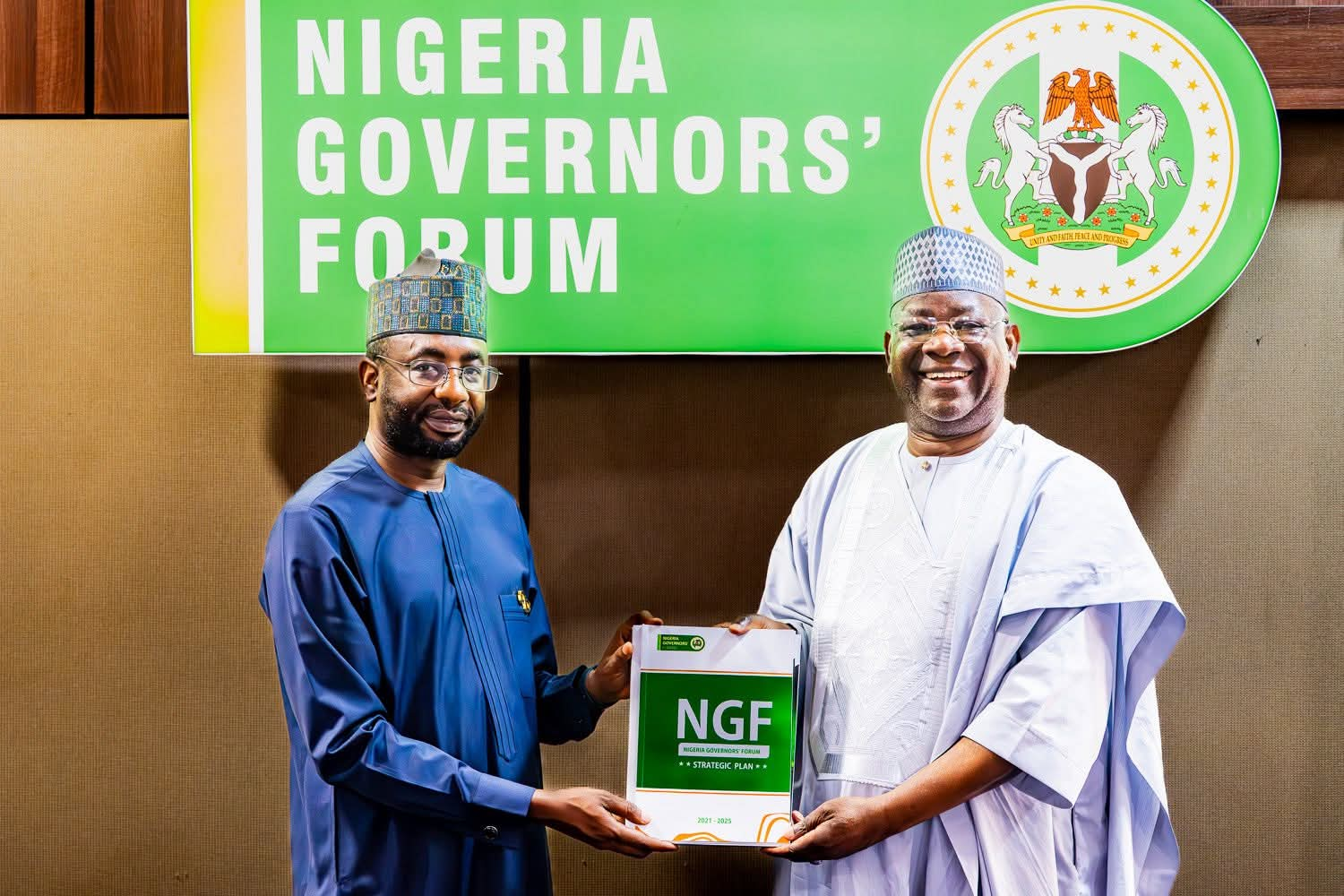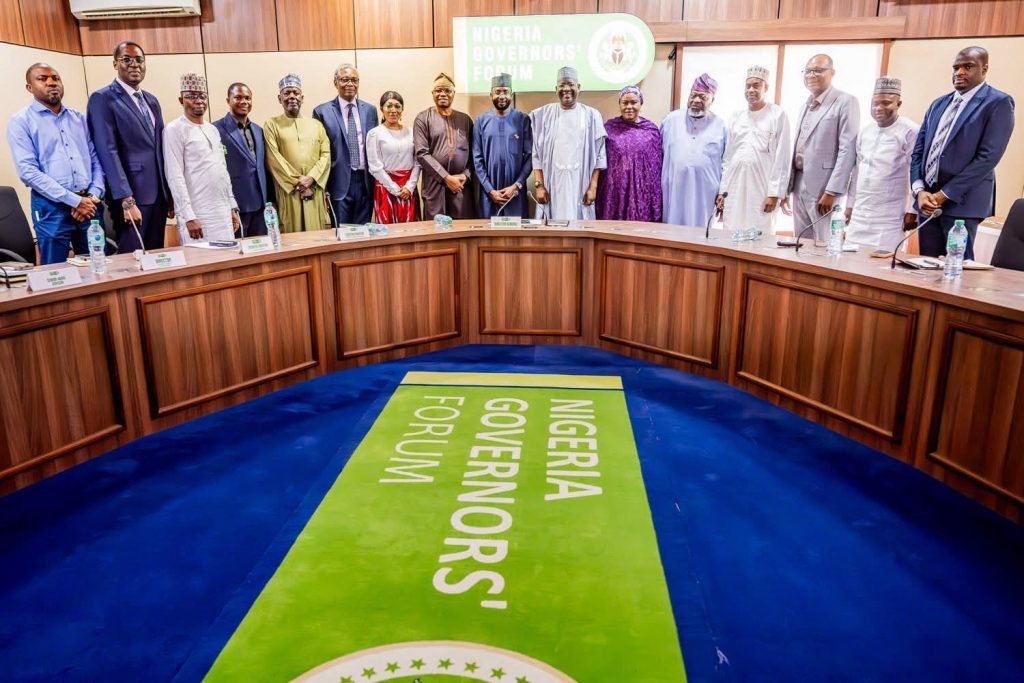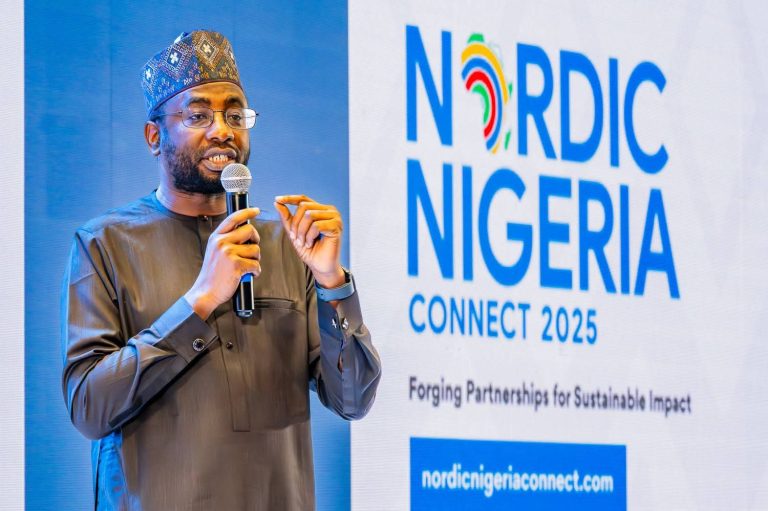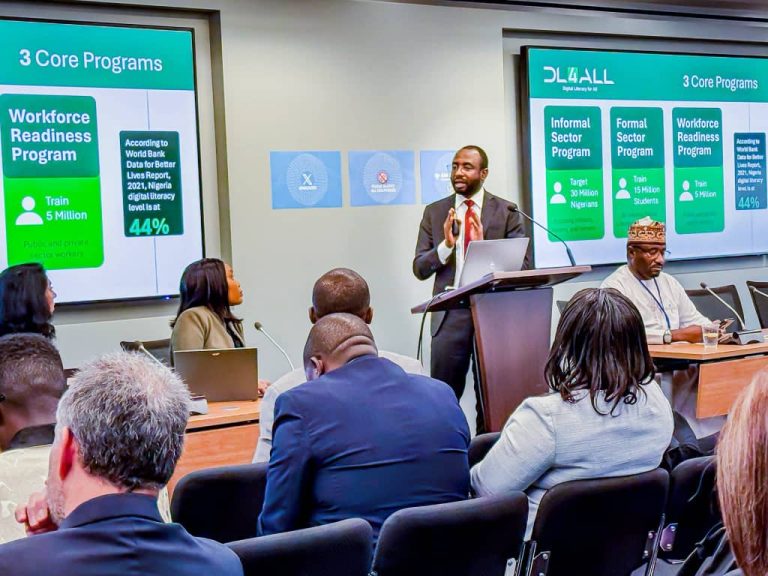
The Director General of the National Information Technology Development Agency (NITDA), Kashifu Inuwa CCIE, has called on state governors to strengthen collaboration with the federal government to accelerate inclusive, technology-driven growth across Nigeria.
Inuwa made the appeal during a visit to the Nigeria Governors’ Forum (NGF) Secretariat in Abuja, where he emphasized that digital transformation must be a shared national vision that involves all levels of government.
“Our mandate isn’t just federal—it’s truly national, which means it must embrace state and local governments,” the NITDA boss said, urging states to “strengthen collaborations that embed our initiatives directly within state and local structures.”
He noted that Nigeria’s digital economy has experienced remarkable growth, recalling that when NITDA was established, fewer than 500,000 Nigerians used computers, and ICT contributed less than 0.5% to the Gross Domestic Product (GDP). Today, he said, the sector accounts for over 17% of GDP with more than 130 million internet users nationwide.
According to Inuwa, this transformation has been driven by strategic partnerships among government agencies, private organisations, and international development partners. He reaffirmed NITDA’s commitment to building “a digitally empowered nation that uses technology to drive national prosperity,” guided by the agency’s Strategic Roadmap and Action Plan (SRAP) anchored on eight key pillars.
He highlighted Digital Literacy and Talent Development as the first and most critical pillar, noting that NITDA aims to achieve 70% digital literacy by 2027 and 95% by 2030 through programmes such as the 3 Million Tech Talent (3MTT) initiative and the National Digital Literacy Framework (NDLF).
The agency, he added, is collaborating with the Federal Ministry of Education, the National Universities Commission (NUC), and the National Board for Technical Education (NBTE) to integrate digital skills into curricula at all education levels.

Inuwa also announced ongoing partnerships with the Head of the Civil Service of the Federation and the National Youth Service Corps (NYSC) to train civil servants and corps members through the NYSC Digital Literacy Champions Initiative, expected to reach over 10 million Nigerians annually—especially in the informal sector.
“No one succeeds in isolation. We must work as an ecosystem to create prosperity and inclusivity through technology,” he said, while inviting state governments to participate in NITDA’s forthcoming International Conference on Electronic Governance (ICEGOV) and Digital Nigeria Conference, aimed at promoting cross-state collaboration in digital governance.
In his remarks, the Director General of the Nigeria Governors’ Forum, Dr. Abdulateef Shittu, described NITDA’s engagement as a “significant step toward strengthening intergovernmental collaboration” in advancing Nigeria’s digital economy agenda across all 36 states.
Shittu commended NITDA’s leadership, stressing that technology has become a key driver of competitiveness, opportunity, and inclusive development.
“We deeply appreciate your leadership and the critical role NITDA continues to play in advancing Nigeria’s digital economy. In an era where technology defines competitiveness and opportunity, your work stands at the heart of our nation’s transformation,” he said.
The NGF DG added that digital transformation should be viewed not only as a tool for administrative efficiency but as a national imperative capable of enhancing service delivery, expanding economic opportunities, and improving citizens’ lives.
He cited the Forum’s ongoing initiatives such as the Digital Public Infrastructure (DPI) Readiness Report and the Intelligent Revenue Authority Readiness Report, which are guiding subnational reforms in digital identity, data exchange, payments, and trust systems.
“These reports are already shaping actions at the subnational level,” Shittu said, adding that collaboration on Technical Standards for DPI and the Nigeria Data Exchange Framework would enhance interoperability and secure data sharing across government systems.
“With strong partnership and shared accountability, we will unlock a future where every Nigerian, urban or rural, has access to the tools and opportunities of the digital age,” he concluded.



